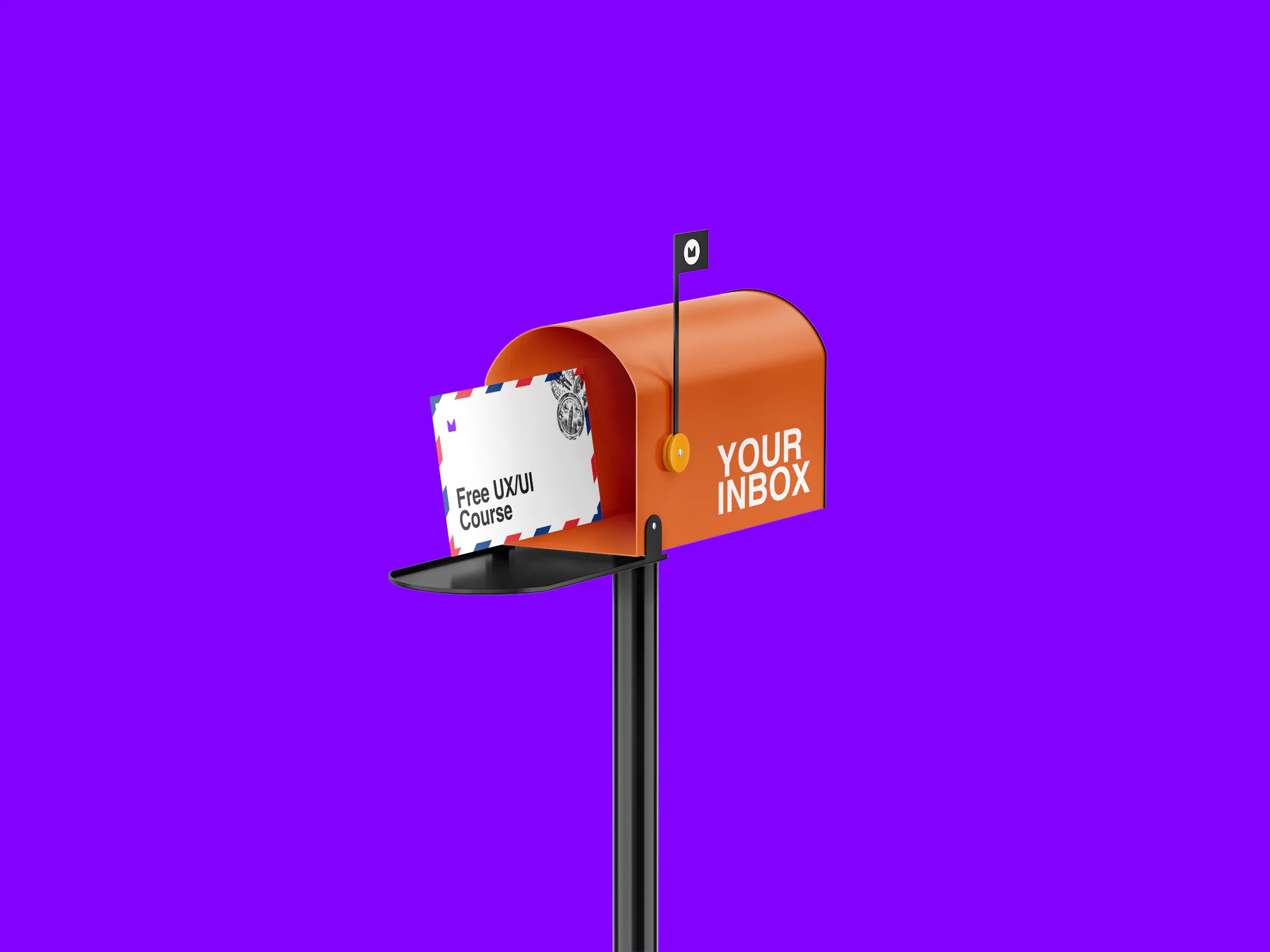

Get a Free UX/UI Course in Your Inbox Every Day for 15 Days
By the end of this three-week crash course, you'll have a much better understanding of the tech industry, the design craft, and all the knowledge you need to start building your career.

Get a Free UX/UI Course in Your Inbox Every Day for 15 Days
By the end of this three-week crash course, you'll have a much better understanding of the tech industry, the design craft, and all the knowledge you need to start building your career.

I became familiar with mentorship quite later in my life while I was part of Mento Design Academy. Subsequently, as my Design career evolved and I got my full-time role, I leveraged mentorship in various ways, from my leader, my main mentor, to other people available in the company offering their support in their area of expertise. I had a mentor in UX research and one in Product management. And I became a mentor myself.
Whether you enrolled in a program that offers mentorship, you’ve reached out to someone from ADP list, or to that senior colleague that has always supported you, having a mentor is a blessing. So keep him close. How? Let me walk you through some of the things I’ve learned.
If there is something many people having a mentor can agree with, it is that sometimes, the mentorship sessions can feel way too short. You have so many questions, or you’ve just started a fruitful debate on a topic. Being mindful of someone else’s time and energy and having all your issues discussed simultaneously seems like an impossible mission. But it doesn’t need to be that way. You might not be able to squeeze hundreds of questions in 30 min or discuss an entire project, but you can make the best of what you got.
The simplest way you can do this, shared by all the people I’ve talked to, is to prepare an agenda before your meetings. It might come as self-explanatory, but sometimes you might not realize how tempting it is to go with the flow.
Having a clear set of questions or topics you want to discuss will:
Let’s take them one by one. By having a clear set of goals in mind, you won’t waste time desperately trying to come up with the right topic on the spot. After the initial rapport building, you can jump straight into work.
As a good practice, you can send your agenda to your mentor in advance. Or, if time or context doesn’t permit, go through it at the beginning of the session before tackling each topic one by one. This way, your mentor will be able to prepare, understand your struggles, and can help you faster or more efficiently. Also, having a clear picture of what to tackle will allow your mentor to manage time better in your favor, ensuring they approach all subjects (or a significant part of them) as much as possible. Sometimes meetings might end on the same subject they started on, without realizing there are a couple more priority aspects to discuss.
Coming to the third point, having a clear agenda in mind can come in handy if you fear awkward silences, especially in the case of recurring weekly sessions.

While on this topic, some may argue that it always takes work to prepare an agenda. The week goes by so fast, we get caught up in our work, and the next mentorship session is there without even realizing it. Sometimes, even a quick agenda prepared 15 min before can do wonders, but if you want to kick things up a notch, here is what more students shared, and I 100% agree:
Now that you know how to prepare for a mentorship session, here’s a second tip.

We all have our struggles, whether personal or professional. Some of us are better at writing our thoughts, while others dread presentations. Some people need a clear structure to be accountable; others go with the flow. Sharing these with your mentor as early as possible will create a relationship based on trust and transparency. Your mentor will also be able to help you better if they know what makes you motivated and what brings you down. Always be real, and if something is not working, speak up. Your mentor is not there to only see the best part of you; you are not in a competition or an interview. But he is there to prepare you for that. Like a good coach, your mentor should know everything that is bothering you, not only what you are the best at.
Identify where you shine and where you fall short. Discuss your findings with your mentor, as most of the time, they might have been through the same things. Think about the years of experience you can have access to. It’s only a matter of being self-aware and looking to grow.
Most of the time, the feedback we get or the efficiency of the answer relies not only upon the experience of the person we expect feedback from but the way we phrase our questions or the context we provide. It’s always about the why and what you’ve tried before.
Contextualizing your questions or messages will make a difference. When reaching out for guidance, ensure you are intentional and clear about the areas you need help with. Also, specify why and what you’ve tried before instead of throwing a question and then lying back waiting for an answer. Why do you need guidance on a particular topic, and what are your blockers? Simply mentioning this to your mentor before asking for their opinion will help them offer a better, more suitable response.
Sharing details is also a way to increase time efficiency. Sharing what you’ve already tried in advance can help your mentor focus on different ways forward instead of reiterating something you’ve already tried and didn’t work. Even though sometimes, this might be the case if your mentor thinks something needs to be pursued again.

Whether you are just starting in the Design industry or have a bit of experience already, having a mentor can be the key to success. It leads to better, more impactful, personalized feedback and accountability in your learning or working process. So, let’s take a moment to recap and get some actionable tips for your next meeting:
Your mentor is there to guide you and share their experience, but you have to do the hard work. A mentor will not grade your work based on a scale and will not give you the solution right off the bat: they will guide you on how to get there yourself.
You can associate this relationship with the one you have with a great therapist: no judgment, no recipes for your problems, only candid guidance to your inner self.
